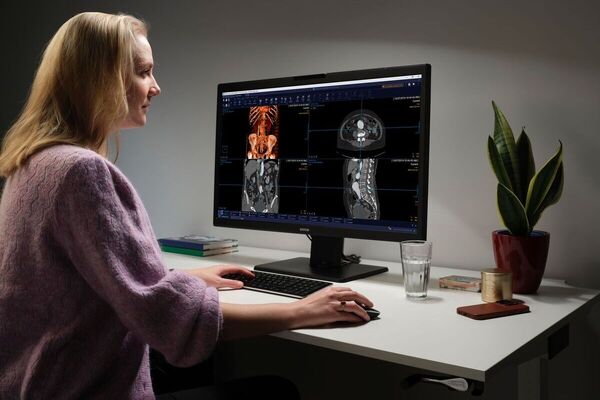Why custom diagnostic testing could mean more efficient, effective healthcare

Healthcare systems worldwide are grappling with a perfect storm of challenges: to guarantee high-quality care to aging populations while dealing with rising operational costs, reimbursement complexities and chronic staffing shortages in clinical laboratories.
In an era where efficiency, precision and adaptability are paramount, diagnostic testing strategies must evolve. Thoughtful, scalable solutions that prioritise both clinical efficacy and patient-centred economic sustainability are essential to address these mounting pressures.
Addressing cost and operational challenges in healthcare
Healthcare leaders are increasingly aware of the need to provide value-based care while optimising revenue cycles. Achieving this balance requires innovative diagnostic approaches that streamline workflows, improve efficiencies and enable better decision-making – all of which contribute to a faster actionable diagnosis, ultimately improving patient management.
The conversation about healthcare efficiency often focuses on broader systemic reforms. However, incremental improvements within clinical laboratories can have a profound impact on both financial and clinical outcomes. Flexible testing frameworks that align with reimbursement structures and clinical needs help ensure patients receive the most appropriate care quickly – avoiding delays, unnecessary testing and added costs.
Diagnostic stewardship: the path to smarter testing
Diagnostic stewardship, at its core, is about applying the right test to the right patient at the right time. It is the clinical response to the increasing demand for cost-effective, high-quality testing. By identifying the most appropriate diagnostics early in the care journey, clinicians can initiate targeted therapies more quickly, reducing patient wait times and improving outcomes.
As healthcare facilities look to reduce unnecessary testing and improve workflows, the importance of diagnostic stewardship cannot be overstated. Real-world data from clinical trials continue to affirm the benefits of a tailored approach to diagnostic testing. Moving away from broad, one-size-fits-all testing strategies toward targeted, patient-specific panels allows laboratories to deliver more relevant and actionable results. This not only supports better use of resources but also ensures that patients are not subjected to unnecessary delays or expenses.
Embracing diagnostic flexibility: a key priority for leaders
Flexibility in diagnostic testing is no longer optional – it is foundational. Healthcare leaders must prioritise scalable testing models that can adapt to diverse patient populations, varying levels of throughput and evolving clinical needs. Tailored diagnostic pathways can accelerate time-to-treatment, enabling earlier interventions that can get patients back home faster and healthier.
True adaptability requires a deep understanding of clinical workflows and reimbursement challenges. Testing models that allow clinicians to customise testing targets – and pay only for the results they report – represent a significant advancement in both clinical efficiency and patient cost management.
Flexible testing is not just a technical advancement; it’s a patient-first innovation. As personalised medicine is transforming the way the patients are taken care of, based on their specific profiles, testing needs to evolve towards a more personalised approach.
Leveraging AI to drive precision and efficiency
The application of artificial intelligence in healthcare is expanding rapidly, with the number of cleared AI-based devices tripling in recent years. However, the true potential of AI lies not in replacing clinicians but in augmenting their capabilities to improve patient outcomes and streamline diagnostic processes.
Thoughtfully integrated AI tools can optimise testing algorithms, automate routine workflows and reduce the time from symptom to solution. These technologies not only support laboratory staff but also empower clinicians to deliver faster, more accurate diagnoses. The automated assessment of the variables in patient medical records can inform the best diagnostic choice, based on pre-test probability – ultimately providing clinicians with the information to begin treatment sooner for a quicker recovery and reduced hospital stay.
Innovation for a changing landscape
The future of healthcare diagnostics requires a commitment to continual innovation. As healthcare systems evolve, so must the diagnostic tools and strategies that support them. Achieving success will require ongoing collaboration between healthcare leaders, diagnostic specialists and technology innovators.
Diasorin has a history of combining ideas with successful execution, and is committed to continuous innovation in the specialty infectious diagnostics disease space to meet the future needs of every segment of the testing market – always with the end goal of improving patient outcomes.
The road ahead
The future of diagnostic testing lies in responding to real-world challenges. As leaders in this space, we must continue to drive innovation that disrupts the way diagnostics are performed, providing the tools that enable healthcare systems to sustain and enhance patient care, despite cost pressures and resource constrains.
by Angelo Rago, President, Luminex Division of Diasorin

Business Reporter Team
Most Viewed
Winston House, 3rd Floor, Units 306-309, 2-4 Dollis Park, London, N3 1HF
23-29 Hendon Lane, London, N3 1RT
020 8349 4363
© 2025, Lyonsdown Limited. Business Reporter® is a registered trademark of Lyonsdown Ltd. VAT registration number: 830519543





